Highlight The Canals
We
had a gentle start to the day as we were aware Margaret and Don might still be a
bit jet lagged.
I was reading a book in the lounge when everyone appeared and
then we had a very nice continental breakfast with freshly made croissants as
well.
We
discussed going to a nuclear bunker, but opted for a drive around the area of
Milton Keynes, finishing with the canal museum that Don and Margaret had hoped
to visit before on a day when the area was booked out. It is always nice to do
something that is also new to the hosts.
The area they live in is called Aspley Guise, and the wider area of Milton
Keynes is growing very fast and absorbing a lot of the villages. The development
looked good from what they said and what we saw, with cycleways and walkways
crossing the area, with underpasses well removed from motorised vehicles. Don
often has interesting snippets to pass on and one was that a village has a
Church of England or Roman Catholic church, otherwise it is a hamlet. Margaret
told us that cell phone and TV reception were poor in the area because the Duke
of Woburn Abbey did not allow towers on his land and he owns a lot of the land.
Margaret
mentioned how they chose the village to live in. It was an area close to the
motorway and roughly equal in distance between the place she was working and where
Don had been working, with a pub and nearby shopping. They chose well and we
enjoyed seeing the church (with a cache), the manor house, many old homes and a
couple of thatched roofs that had the representation of a duck on the roofline.
I don’t recall seeing creatures built in before.
Margaret
works for Sainsbury’s and told us it is standard for people from the head
offices such as her to work in the stores the 2 days before Christmas. Most
work in the liquor departments which makes a lot of sense. Despite her knee
operation she still has issued with her legs so ends up on the telephone, and feels
she provides very worthwhile cover for the staff at that time as she is very busy.
We
went past massive distribution centres, most labelled John Lewis. They were
painted in shades of grey and blue so blended into the skyline so well, but
there was no disguising their massive size.
The new face of shopping was
discussed as we drove and the necessity for companies to be on line to survive.
It had just been announced that Marks and Spencer were closing branches and Margaret
said it was a combination of a poor online presence, along with an unsuccessful
attempt to change their target market that both didn’t attract new customers
and had put off their previous clientele. John had mentioned the lack of
computer stores and they told us they are not in the High Street, but in the
big out of town ‘malls’. On line shopping is very popular and deliveries
reliable so people are happy to avoid the driving.
We
also saw a lot of green areas and stopped on a bridge to look at the canal
there. There was a cache in the vicinity but a bit far away to go for and lots
of the information they tell us we were getting from our hosts.
We
then headed for the area where the canal boat museum was, Stoke Bruerne. There
was a narrow boat doing trips to the nearby tunnel mouth and back that took 25
minutes and that was perfect for us.
We had been discussing our memories of a
trip on a canal boat (Kia Ora) then owned by their friends but this was clearly
set up just for transporting people back and forwards. We passed a few that are
lived on, people enjoying the fishing and others walking the tow path. We had
heard all about the tunnel from a fellow passenger who was telling his group
and another group all about it. We drove in a short distance and then the
lights were turned off briefly so we could appreciate how dark it actually was.
After we left, the crewman told us about the tunnel and it was amusing to find
how much misinformation our fellow passenger had shared.
The
Bilsworth tunnel is the second longest continuous tunnel in the UK being 1.75
miles long. Although it did not seem that wide, it was built so that 2 narrow
boats can pass at any point along the length. It was built by hand with pick
and shovel and opened in 1805. At first the boats were poled though the tunnel
as there is no towpath. Then the company employed registered ‘leggers’ to
‘walk’ the boats through. Leggers lie on their backs and by placing their feet
on the side of the tunnel they can ‘walk’ the boat through the tunnel.
The
museum was small, over 2 levels, above a gift shop. After getting lost trying
to find something in the V and A in London, small was good. It told us about the
early canal engineers, the people who worked on the canals and the technology.
1780 to 1796 was an era of canal mania with lots of
people rushing to put money into opening canals.
Most of these new ones were
either never completed or never profitable because of the birth of the
railways, which took over much of the freight movement. We tend to forget that
they were built for commerce, not gentle holidays.
There were a number of very colourful displays as
the people living on the boats seemed to favour bright flowery designs on their
pots and pans and lacy window coverings. It was a hard life, as the boats were
continually moving up and down the canal and schooling for children was rare.
It reminded me of the life of gypsies, but on water There were legging boards
on display as well as company brasses fitted to the blinkers the horses wore.
The building of the tunnel had a display of its own and there was also one
showing the development of the canal network over time.
I hadn’t realised there was an equivalent to land
girls on the boats in the war. The work had not been a protected occupation but
then freight movements were hindered with the men being sent to war. It was not
done through the government but the canal company.
They contacted a woman who
had a female crew already and she trained others to take over some of the work.
Because the women on the Inland Waterways Scheme were not government sponsored
they had no uniform or extra rations. The display said they would often find it
harder to buy food as shops gave priority to locals.
We decided on a light lunch rather than a pub lunch
then headed back to Margaret and Dons. He took us the pretty route for the last
part and it was really lovely English countryside, with the avenues of trees
meeting overhead, and a golf course on one side. We then returned via the
familiar drive through the village with a final check of our room before we
headed away after a cuppa.
We had an easy run back as often happens when we
leave lots of time and could have stayed longer. As a result I went for a walk
to the Park that was closed a couple of nights ago. It was lovely and also
included a well-used paddling pool for under 11s as well a lovely lawn and
trees. The cache that had brought me here involved getting information at the
gates and then was 500m away – near a different gate I was to find. It took
some finding so I was later back than I had suggested to John. I stopped for some milk on the way.
When we had asked Katherine for a recommendation for
a place to eat for Jane and Ian’s birthday Poppy’s was referred to. She told us
it was good, but not quite ‘special birthday’ good. We could see what she meant
when we entered as the dining area is small, the menus rather tatty and the
décor eccentric. There were bits of china, stuffed animals and several tables
crowded into the room. We had not booked, and we didn’t have enough cash with
us but both fitted together. We went to a cash machine and they had a table for
us on our return. I found one dish a bit peppery but can see why the place is
so popular. It was good Thai food at reasonable prices and food was often going
out the door as they had a thriving takeaway business as well.
We talked with 2 people from Cairns who sat at the
next table. They were about to join a tour group with about 30 days in Europe.
We walked the 9 minutes or so home where we did a bit more packing for
tomorrow.

 London, England, United Kingdom
London, England, United Kingdom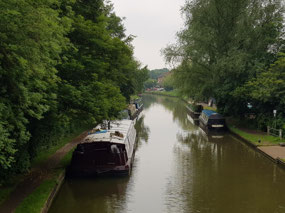
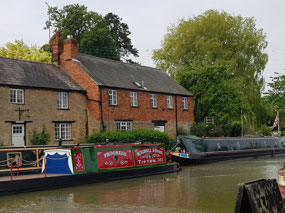
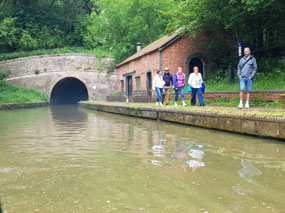
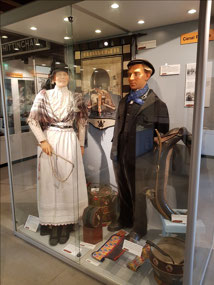
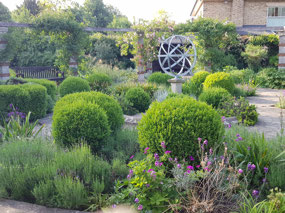
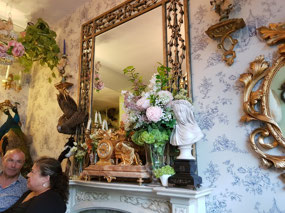





2025-05-22